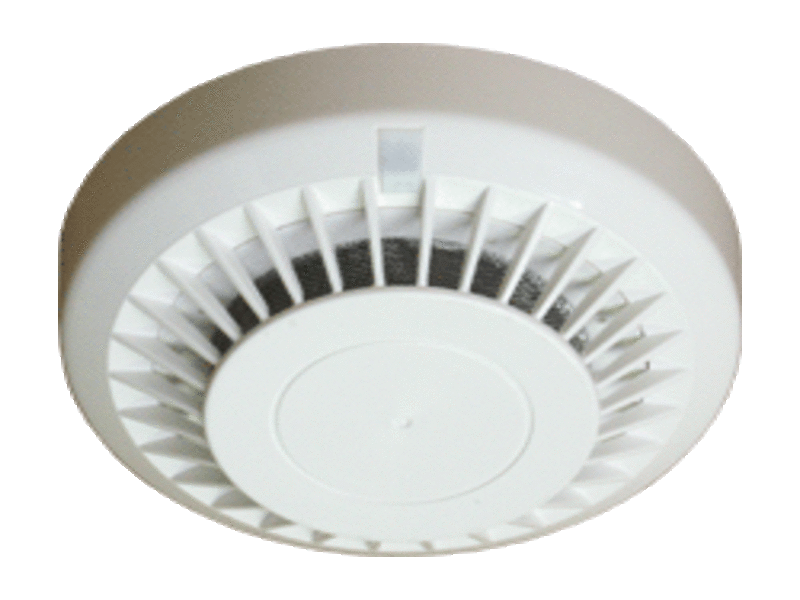Type:
Addressable optical smoke detector
Purpose:
Processor, optical smoke detector DOR-4046 is designed for detection of visible smoke, concomitant with most of fires. It enables detection of fire at the beginning stage, when material starts burn, i.e. a long time before the moment when open flame appears and temperature is high.
The DOR-4046 is an analogue one, with automatic self-compensation of their sensitivity, that is to say it can hold the constant sensitivity during dirt collection increasing inside measurement chamber and by changing of pressure and condensing of steam.
Co-operation:
The optical smoke detector DOR-4046 can operate only in lines/loops of all addressable fire alarm panel POLON 4000 series.
Certificate:
CNBOP 1438/CPD/0014
Technical data:
- quiescent current 150μA
- power supply from fire alarm control panel
- test fire class TF2 to TF5
- operation temperature -25ºC ÷ +55ºC
- base G-40


